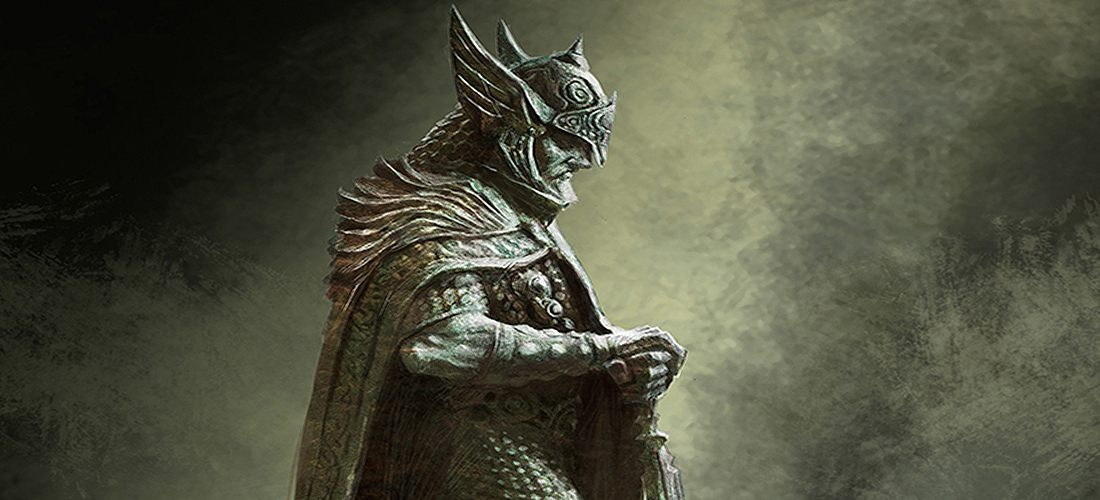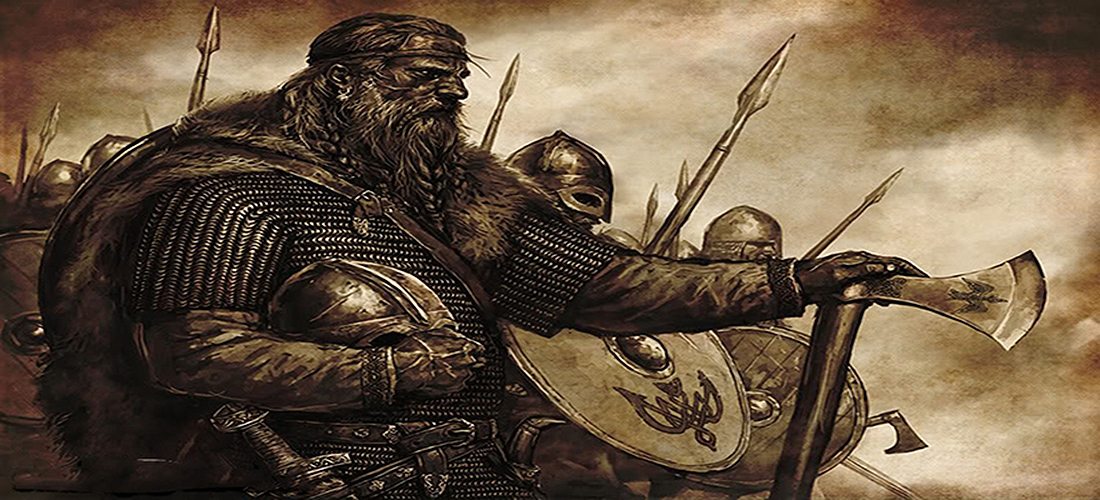As I pointed out, Shinto does not believe in gods/goddesses. Kami as gods is a poor analogy, they are emanations of a monistic unity, just stronger than the other emanations. As such the Emperor was a Kami, Amaterasu was a Kami, a mountain was a Kami, a big rock was a Kami. You are being confused because you are reading the English meaning into a Japanese context.
None of that matters when others in Shintoism have already noted they believe in gods/goddesses and we're being dishonest saying otherwise when that has already been noted. Again, if you're going to speak on the issue (off topic as it is), actually give quotations and deal with what others in Eastern culture note since it's showing you really have no awareness on what they've said when they in Japanese culture already have said what they mean by gods/goddesses and stated they believe in divinity. The best you have done thus far is no different than someone coming at things from being OUTSIDE of a culture (or interaction with others in that culture) and reading into their views what they think due to prior assumptions rather than what they have said about it. Gods and Goddesses are a focus in Shinto and there's no escaping that simple fact - other aspects of it being similar to what has been present in cultures with Aminism (also present in Japan when it comes to the Spirits), as Shinto, the traditional religion of Japan, is highly animistic. Both of these things discussed before in places such as
Japanese Ainu & Global Indigenous Groups: What Aborginal Religions are your favorite? and
Apr 30, 2015 and
Legend of Korra", Eastern Views, T.V & Ethics: What Can Christians learn from Anime?).
We have to deal with the culture since Amaterasu Omikami was the Sun goddess and one of the principal Shinto deities...and Her name, Amaterasu, means literally "that which illuminates Heaven", as she was born from the left eye of Izanagi as he purified himself in a river and went on to become the ruler of the Higher Celestial Plain....and Shintoism has been seen as very polytheistic.
You are not saying anything remotely substantive or authorative when ignoring the fact that worship of spirits is no different than others worshiping gods/goddesses called differing names in other cultures. It is a rather moot point since the issue is that gods/goddesses vary - whether those that are automatically divine (as in polytheism) or those who are in nature (as with animism) - th
e issue is worship of spiritual/supernatural beings and spiritual/metaphysical forces in this life and doing equivocation means nothing. Start with actually going to the cultures before speaking on it since you are not showing a lot of awareness on the issue when bringing in a rather pointless concept focusing on the English when people in Japan are focused on the concept of worship - noting that spirits of their ancestors, for example, are not necessarily made eternal but they are worshiped and thus their 'gods' - the etymology of the word SHIFTING in several contexts as they are aware of.
Shintoism is complicated. As said before:
We cannot ignore other Japanese who live in the culture, are Shinto and note the etymology of their own culture, as they have noted what many in America (As you're doing) tend to do when coming into a culture - trying to get ONE definition in the English of what gods/goddesses mean - and then trying to superimpose that on their own culture/religion because they had several definitions of gods/goddesess play, with gods referencing spirits and ancestors as well as Supreme Deities - and as said before, you need to take it up with them.
BBC - Religions - Shinto: Kami
Shinto is based on belief in, and worship of, kami.
The best English translation of kami is 'spirits', but this is an over-simplification of a complex concept - kami can be elements of the landscape or forces of nature.
Kami are close to human beings and respond to human prayers. They can influence the course of natural forces, and human events.
Shinto tradition says that there are eight million million kami in Japan.
Concepts of kami
Shinto belief includes several ideas of kami: while these are closely related, they are not completely interchangeable and reflect not only different ideas but different interpretations of the same idea.
Kami can refer to beings or to a quality which beings possess.
So the word is used to refer to both the essence of existence or beingness which is found in everything, and to particular things which display the essence of existence in an awe-inspiring way.
But while everything contains kami, only those things which show their kami-nature in a particularly striking way are referred to as kami.
Kami as a property is the sacred or mystical element in almost anything. It is in everything and is found everywhere, and is what makes an object itself rather than something else. The word means that which is hidden.
Kami have a specific life-giving, harmonising power, calledmusubi, and a truthful will, called makoto (also translated assincerity).
Not all kami are good - some are thoroughly evil.
Kami as 'God'
The idea that kami are the same as God stems in part from the use of the word kami to translate the word 'God' in some 19th century translations of the Bible into Japanese.
This caused a great deal of confusion even among Japanese: the Shinto theologian Ueda Kenji estimated in 1990 that nearly 65% of entering students now associate the Japanese term kami with some version of the Western concept of a supreme being.
The next section shows that kami are actually very different from the Western concept of God.
Kami as beings
The concept of kami is hard to explain.
Shintoists would say that this is because human beings are simply incapable of forming a true understanding of the nature of kami.
To make understanding easier kami are often described as divine beings, as spirits or gods. But kami are not much like the gods of other faiths:
Kami are not divine like the transcendent and omnipotent deities found in many religions.
Kami are not omnipotent.
Kami are not perfect - they sometimes make mistakes and behave badly.
Kami are not inherently different in kind from human beings or nature - they are just a higher manifestation of the life energy... an extraordinary or awesome version.
Kami don't exist in a supernatural universe - they live in the same world as human beings and the world of nature
Kami include the gods that created the universe, but can also include:
The spirits that inhabit many living beings
Some beings themselves
Elements of the landscape, like mountains and lakes
Powerful forces of nature, like storms and earthquakes
human beings who became kami after their deaths
Kobayakawa Takakage, Japanese historical figure, talks to the tengu (minor kami) of Mount Hiko. By Tsukioka Yoshitosi, 1892©
The term kami is sometimes applied to spirits that live in things, but it is also applied directly to the things themselves - so the kami of a mountain or a waterfall may be the actual mountain or waterfall, rather than the spirit of the mountain or waterfall.
Not all kami are sufficiently personalised to have names - some are just referred to as the kami of such-and-such a place.
Three types of kami are particularly important:
- Ujigami, the ancestors of the clans: in tribal times, each group believed that a particular kami was both their ancestor and their protector, and dedicated their worship to that spirit
- Kami of natural objects and creatures, and of the forces of nature
- The souls of dead human beings of outstanding achievement
A Japanese description of kami
Motoori Norinaga (1730-1801) was one of the most distinguished Japanese scholars of religion and enthusiasts for Shinto revival. He described kami like this:
I do not yet understand the meaning of the word 'kami'. In the most general sense, it refers to all divine beings of heaven and earth that appear in the classics. More particularly, the kami are the spirits that abide in and are worshipped at the shrines.
Motoori Norinaga
Shinto Gods - World Religions Professor
Shinto is the "way of the gods" - and Shinto gods and goddesses are calledkami.
The term kami refers to anything that is above, high, special, unusual or auspicious in any way. It refers to the essence, or internal quality, of many phenomena that Shinto believers consider an aura of divinity. These phenomena include rocks, trees, rivers, animals, places and people. All of these can contain the nature of the kami. Also in the category of kami arethings that inspire a sense of wonder or awe in the beholder in a way that testifies to its special nature or the divinity of its origin.
In other words, many things in the world possess an "ultimate" sense about them - as if they are connected to or reflective of "the ultimate" or the divine. This sense is what is called the kami.
There are basically 3 categories or types of kami:
- abstract powers associated with nature - i.e. the essence of certain weather events, natural rock or landscape formations, bodies of water, forests, etc.
- family ancestors - deceased ancestors whose essence lives on in the family as a revered and honored presence - this is especially true of families with aristocratic lineages (rulers, emperors, etc.), whose ancestors will be honored by the general population, not just the blood relatives
- souls of the auspicious dead - especially soldiers and other war dead - these are revered for their bravery, commitment and service - many of the most prominent Shinto shrines in Japan are devoted to the worship of the kami of the war dead
Shinto Deities in Japan, Japanese Shinto-Buddhist ...
The Shintō pantheon of kami 神 (spirits) includes countless deities and innumerable supernatural creatures. The term KAMI can refer to gods, goddesses, ancestors, and all variety of spirits that inhabit the water, rocks, trees, grass, and other natural objects. These objects are not symbols of the spirits. Rather, they are the abodes in which the spirits reside. The abode of the kami is considered sacred and is usually encircled with a shimenawa (rope festooned with sacred white paper). The Japanese believe this world is inhabited by these myriad kami -- spirits that can do either good or evil. These spirits are constantly increasing in number, as expressed in the Japanese phrase Yaoyorozu no Kami 八百万神 -- literally "the eight million kami."
Kami are not necessarily benevolent. There are numerous Shintō spirits and demons that must be appeased to avoid calamity, but there is no absolute dichotomy between good and evil. All phenomena manifest "rough" and "gentle" characteristics. The noted Japanese scholar Motoori Norinaga 本居宣長(1730-1801) defined kami as anything that was "superlatively awe-inspiring," either noble or base, good or evil, rough or gentle, strong or weak, lofty or submerged. There is no definitive standard of good and evil, there is no moral code. Things are as they are. Even the evil bloodsucking Kappa has some redeeming qualities -- i.e., when benevolent, the Kappa is a skilled teacher in the art of bone setting and other medical practices.
Unlike Buddhism, whose deities are generally genderless or male, the Shintō tradition has long revered the female element. The emperor of Japan, even today, claims direct decent from the Shintō Sun Goddess Amaterasu. I
It does not mean a shred of anything claiming what others in Shinto believe when you're not even addressing their own cultural context, their noting (beyond any kind of false equivocation of "Well gods in the English is different than their use") that they believe in supernatural beings to be worshiped just as other theistic religions do (seeing that gods vary in how they are seen anyhow). We already know (if you read ) that Kami are a variety of spirits/beings and that they are worshipped - even though their status as 'gods' is very different concerning when compared to the nature of gods/goddesses in other religions. But the term 'god' is still used in a reverential mode of thought - this is no different than what has occurred in Christianity if examining Psalm 82 when it comes to men being referred to as 'gods" - For many coming out of a Charismatic background, having things based in experience is a big deal. I had the same thing when
it came to things I grew up with within the WOF background (Faith Movement) with man being transformed/deemed divine - and as much as others said it was wrong, it shocked me seeing how the concept was not simply something I was trained to see in the Scriptures - but the Early Church had already discussed the concept in-depth with what's known as Theosis - the idea that God became a man so that through him men might become gods (more shared
here and
here/
here). Of course, when we use the term 'god" for men, we're not saying the same exact nature plays out for us as for others using 'gods'...
But this goes back to the issue of understanding CONTEXT and not making mountains out of molehills....
If you're not going to honor what others in Eastern culture have said - and this has been noted before as a serious issue for anyone aware of what authentic comparative theology is actually about - then there's no need bringing it up in the first place..
I am not ignoring the Academic definition, I am using the definition from comparative mythology as I pointed out. Those archaic red herrings Gxg trotted out didn't really use atheist as we do today, the context is dramatically different, so to argue it is the same is ludicrous.
Ad-hominems are not going to do anything in regards to arguing - especially when it does not pertain to the discussion.
You've already been noted to be off-topic - and at this point, beyond failing to give ANY reference to any kind of academic definition (which is circular reasoning akin to begging the question), you again show a lack of awareness on what other atheists have already have shared on the matter. As noted before, the "No True Scotsman" fallacy is pointless when other atheists use the term as was used in antiquity in the first 4 centuries of the Early Church and in following centuries - regardless of whether you wish to use it. And it is rather silly today speaking on what atheists today speak on when other atheists have already shared on the issue - as it is selective argumentation that has little to do with the issue.
As other atheists have noted, including on the history of terms and their use:
Science and nice both come from Scire meaning to know. They are no longer the same word and the shirt and skirt also points in that direction. The word 'food' is etymologically the same word for pasturage in other Germanic languages, but this doesn't mean we can argue the English chew the cud like cattle.
This is a bit irrelevant to discussion but okay....
I defined Atheism as a rejection of spiritual dimensions and beings and proceded to use it in that manner, while I have yet to see a workable definition from you, as to say it is anything 'without gods' doesn't work if you are extending it to pantheism without altering the meaning of 'god/s'.
Once again, begging the question does not show a definition correct when atheism was never situated solely in terms of rejecting spiritual dimensions. What it rejected was deities - and that is something you've yet to show otherwise while ignoring other atheists in the academic world and throughout history. If you cannot deal with the definitions as defined by other atheists, one is not really dealing with atheism as much as they are dealing with their own imagination of what they want the definition to be and then trying to demand others fit that.
That's not how the world works and your refusal to actually deal with definitions has little to do with anyone giving 'workable definitions' when the bottom line is that you simply don't want to deal with any definition opposite of what you wish. One needs to cease trying to tell others in pantheism (and, for that matter, ignoring Spinoza's pantheism and other academic scholars since the 18th century and on) on what they believe when they've already noted it is about not believing in gods or goddesses - your refusal to deal with that DOES NOT change the definition or the meaning of gods.
Language is a common medium that is agreed upon by the two speakers, but if the meaning is so fluid that no value arises, then it means nothing and the usefulness of language dissipates, hence we teach children the meanings of words and define them. The meanings change over time, but that doesn't mean I can use the archaic meanings today, for nice used to mean an idiot, nor that I can pointlessly extend the meaning of a term until it is meaningless (There are better terms for the things you are describing than having to hyphenate them to atheism, its just that being 'atheist' has a bit of a lustre as being 'rational' at this moment in time).
Talking on language is irrelevant when ignoring traditional definitions if they disagree with your own personal biases - you do not get to shift a conversation without first dealing with what was said and doing otherwise shows an unwillingness to actually deal with language.
Thus, the comments you've offered are not useful when they continually ignore definitions given on historical answers and yet you offer NO academic references beyond what you my feel .....so arguments via appeal to emotion are not going to be effective when you ignore terms as they have ALWAYS been used throughout history (in favor of you claiming people somehow "Extend" it or are using archaic terms when you failed to show when a term ever ceased being used altogether).
As it is, The analogies you gave don't even work since people still use the term 'nice' to describe others as idiotic when they are patronizing, as seen when someone doesn't take something seriously and they say "That's nice..."
According to comparative mythology, if they worship the universe, that constitutes religion and therefore they are not atheist. Same goes for godless religion, not atheist.
Please read what I post instead of assuming what I am saying.
Comparative mythology does NOT say that - and as said before, this is why it was noted for you to cease saying what things are like and actually give academic reference on the issue. Academics do not believe in general that someone giving value/meaning on a spiritual level to the universe somehow means that they are a religion - even though they also note that many religions are centered on worshiping the universe. It's no different than saying that both BIRDS and PLANES can fly, but that doesn't mean that BIRDS act the same/are made of the same designs as birds .....and it doesn't mean that the logical thing to do is to say that you think planes need food if saying planes have wings like birds.
If you are going to use any term, than it must have an understandable meaning to both speakers or it means nothing. Which is why I was trying to define atheism in such a way that it maintains some form of meaning. By extending it to pantheism and into spiritual realms, it becomes a meaningless phrase, which for some reason people fail to see.
Claiming a term to HAVE to mean something to both speakers means nothing when not dealing with the context of discussion for a term and seeing how it has been historically used - and again, this goes to the "No True Scotsman" fallacy where it is said you don't like a definition and therefore it is not the definition universally used.
You disagreeing with other atheists/atheists academics in the field does not mean anything when you interjected your own opinions into the discussion - and then saying only your definition is one that gives the term meaning. Ignoring other atheists or atheistic religions (Such as pantheism) is not extending, although ignoring it does show ignorance of the religions themselves that are based in atheistic thought. You disagreeing with that does not make the religion off...
But lets just leave it at that. There are differences of opinion (which I have said before by the way).
And as said before to the rest of what you noted, it is off topic.
People left it alone, although as you keep responding (and again, off topic I might add), it will be responded to) - and as it is, saying there are differences of opinion does not mean anything when others have already discussed. The author of a thread topic determines what is or isn't on topic - and as it concerns ANY religion (Including atheistic ones) and seeing if similar are out there, those are allowed for discussion. If you disagree with it, then you don't have to comment - but continuing to comment on it shows there is a problem you have with it.
Hoping this is understood and that it does not need to be said again...



















